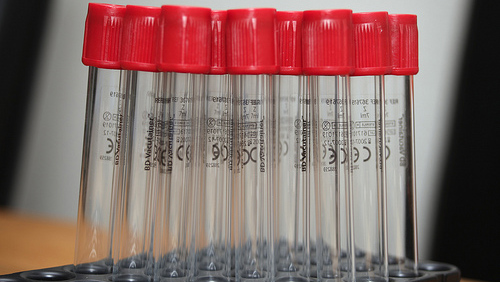“Researchers determined that the lunar water likely originated early in the moon’s formation history, suggesting that it is, in fact, native to the moon,” reports the Christian Science Monitor.
All Articles
Although this week is Homeopathy Awareness Week, Edzard Ernst at The Guardian finds the medical practice more threatened than ever as scientific establishments attack its medicinal claims.
By all officials estimates, the Earth’s population is scheduled to grow rapidly during the coming decades, but this long-term problem ill-suits short term political careers, says The Independent.
Skeptic Michael Shermer thinks we deceive ourselves because “we did not evolve a baloney-detection device in our brains to discriminate between true and false patterns.”
Contrary to popular belief, high crop yields created by industrialized farming have greatly slowed global warming by preventing deforestation for new farmland, says a new study from the Carnegie Institution.
“Fossilized corals and lasers beamed at a receding moon have revealed that over the ages the length of time it takes Earth to spin once on its axis has increased significantly.”
More legislative oversight is needed to control the unofficial expansion of the U.S. forensic DNA database to ensure that innocent citizens are not unfairly implicated in crimes, says Slate.com.
The Federal Bureau of Investigation today released over two thousand pages of its files on former U.S. Senator Ted Kennedy, who died last year after a battle with brain cancer. […]
Audrey Hepburn’s Holly Golightly has served as a style icon for decades, but the subtle complexities of Truman Capote’s heroine are less discussed. Today’s Times review of Sam Wasson’s new […]
Toddlers in tiaras are so passe. Poodle pageants are this season’s hot new reality phenom. Extreme Poodles premiered on TLC yesterday. This is no ordinary dog show. We’re talking poodle […]
Against-the-grain linguist Guy Deutscher thinks that language isn’t completely a product of nature, but that it influences how we perceive the world and, in turn, how we express it.
“A Japanese space probe has landed in the Australian outback after a seven-year voyage to an asteroid, safely returning a capsule containing a unique sample of dust,” says Reuters.
“The bad news for Dad is that despite common perception, there’s nothing objectively essential about his contribution,” says Pamela Paul at the Atlantic. “The good news is, we’ve gotten used to him.”
“Today, black nonmarital births have soared to more than 72 percent among non-Hispanic blacks, compared with about 28 percent for whites,” laments Clarence Page at the Chicago Tribune.
“There are signs that technologists are waking up to the benefits of minimalism,” says The Economist amidst a technology culture that values as many new features as possible.
Astronomer Chris Impey surveys the possible causes of earth’s extinction. Whether it come from an asteroid or the sun’s implosion, the rock we live on is by no means an eternal home.
Should a new term be introduced to define a class of foods of higher quality than “organic”? Some growers say “authentic food” would eliminate undue corporate influence over food production.
In between the extremes of being a slave to your whims and trying to master every emotion, there must be a middle road. Psychology Today talks of a “probabilistic approach” to expressing emotion.
Buying a home could prove an economic disadvantage now that mobility is necessary to find new opportunities, but moving is an emotionally trying event, says Caitlin Kelly at True/Slant.
Scientology’s religious order, Sea Organization, has been accused by its female members of forcing them to have abortions, the reason being that children make the women unproductive.
Lead paint has been banned in the states since 1978, but if you’re like me, you still wonder about the paint debris you inhale in your home, in your office, […]
When Sigmar Polke’s family crossed over to the freedom of West Berlin from the oppression of East Berlin on the subway in 1953, 12-year-old Sigmar feigned sleep to add to […]
Over the last 20 years, the number of science and technology jobs in America has grown by about 4.2 percent per year—yet the availability of qualified U.S.-born workers in those […]
As Parag and Ayesha wrote yesterday, if today you cannot program computers, it is as though you have the skill to read, but not to write. For this reason, kids […]
Social media’s honeymoon is over, says James Rainey at The L.A. Times, but those bothered by privacy concerns and a distracted lifestyle are rethinking their relationship to Facebook et al rather than quiting.
Digging for the roots of the real estate crisis, Alyssa Katz finds an American culture that believed home ownership would repair broken neighborhoods by increase people’s investment in them.
The U.N. essentially acquiesced to a nuclear Middle East, says Massoud Parsi at Al Jazeera, by approving sanctions against Iran that were watered down by Russia and China to the point of being meaningless.
“The Department of Education is a great, burbling vat of waste,” says the National Review, and since it spends tens of billions of dollars annually with no measurable benefit, it should be eliminated.
Just as European soccer teams have physiotherapists for the World Cup, African teams have witchdoctors who invoke supernatural assistance to put their players ahead of the competition.
As the age at which people finish their education, marry and have children is increasing, a new class of individual between adolescent and adult is emerging, reports the New York Times.






